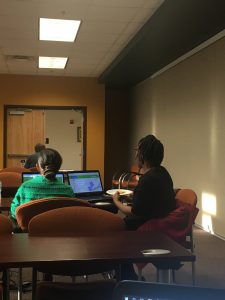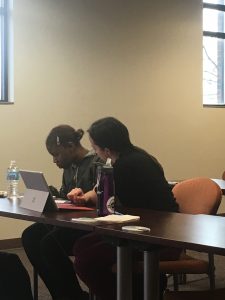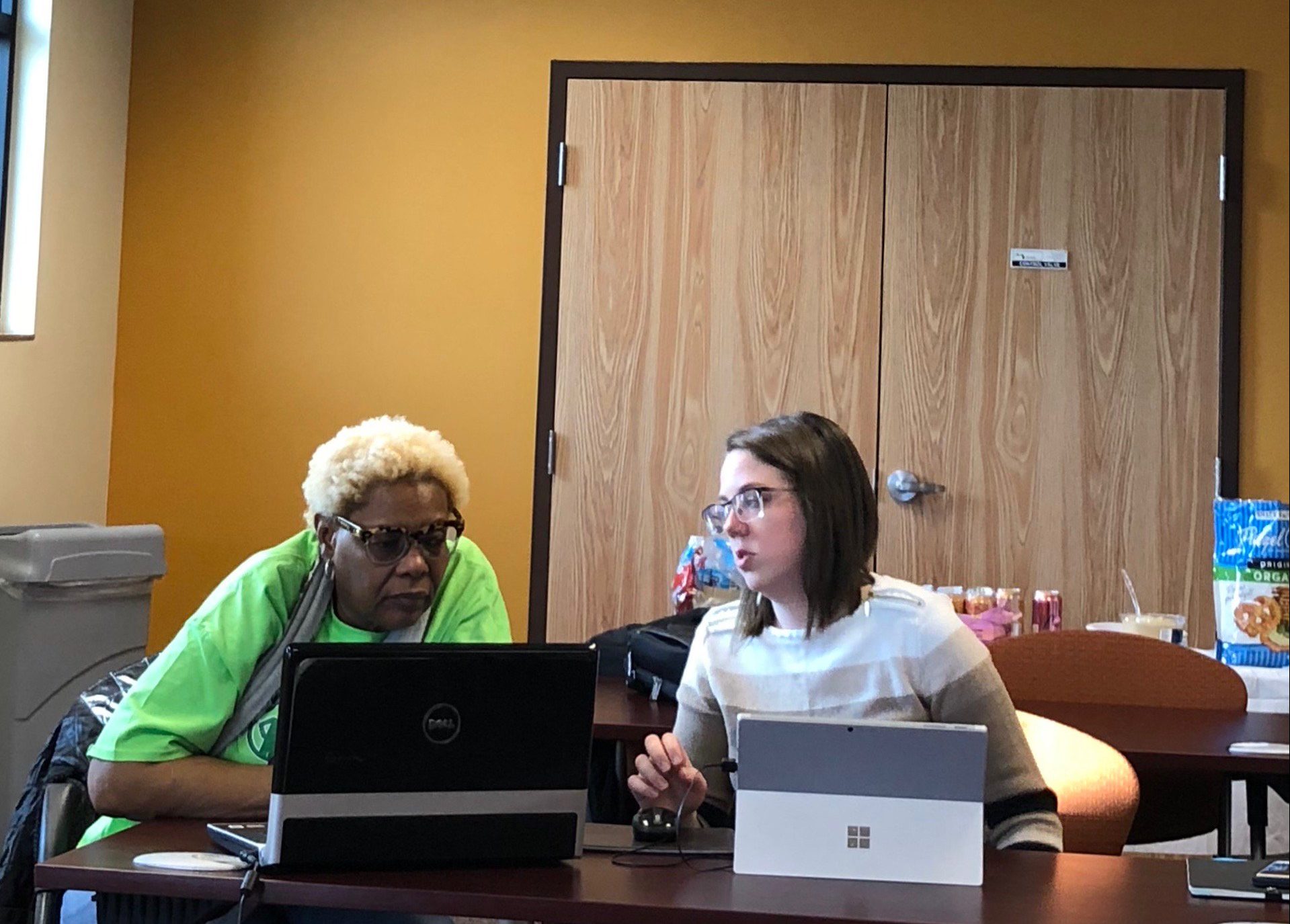The importance of designing usable digital resources is a facet of development that has long been overlooked in the civic tech space. Luckily, there’s a network in Detroit working to bring to light the importance of usability and user testing as well as helping civic service providers learn to implement this important process. Using a model created by then Smart Chicago Collaborative (now City Tech), an organization devoted to improving lives in Chicago through technology, Data Driven Detroit (D3) assembled its own Civic User Testing Group (CUTGroup) in Detroit.
 CUTGroup Detroit is a network of Detroit residents recruited and maintained by D3. Since 2016, D3’s partnership with the Microsoft Cities Team and the City of Detroit has afforded the city with a new way to engage Detroit residents in the design process of tools being built to positively impact their lives. A tool’s design ultimately defines whether or not it’s user friendly –through CUTGroup tests, we’re able to receive feedback from community members about where the tool lands on a spectrum of usability along with a list of adjustments that can be made to move the needle toward heightened usability.
CUTGroup Detroit is a network of Detroit residents recruited and maintained by D3. Since 2016, D3’s partnership with the Microsoft Cities Team and the City of Detroit has afforded the city with a new way to engage Detroit residents in the design process of tools being built to positively impact their lives. A tool’s design ultimately defines whether or not it’s user friendly –through CUTGroup tests, we’re able to receive feedback from community members about where the tool lands on a spectrum of usability along with a list of adjustments that can be made to move the needle toward heightened usability.
The development of CUTGroup Detroit began as an element of improving the civic technology ecosystem in Detroit. As it evolves, it’s quickly become a vital component of D3’s work as we continue to develop tools that improve the lives of Detroit residents. User testing is critical to ensuring data and information are accessible to an audience with vastly different levels of digital literacy. The execution of a CUTGroup test involves meticulous and strategic application of user research methods, making the guidance and support from the Microsoft Cities Team, Microsoft Civic Technology Fellow Meghan Urisko, and Smart Chicago Collaborative invaluable as we continue to leverage what we’ve learned to test tools created with other community partners.
Our most recent CUTGroup test took place in early March. The focus of this test was the beta version of State of the Detroit Child (SDC), a tool developed by D3 (with support from The Skillman Foundation) The goal of this tool is to democratize data by pulling together data that can improve outcomes for Detroit children and make it easily accessible. The platform allows people to view information in an interactive and easy-to-understand way by generating maps, tables, and graphs. With all of these capabilities, it can be difficult to ensure the information is displayed in such a way that makes it accessible not only to those with data experience, but also those without. That’s why performing a CUTGroup test on this tool was so important to D3 – it was crucial to understanding how well residents are able to use the tool. Having a process for doing so helped us gain valuable insight into which parts of the tool worked for the community and which parts needed to be reconsidered or reimagined.
 Other CUTGroup tests performed in the past include an evaluation of a commercial property mapping tool created by the City of Detroit; The Detroit Ledger, a passion project created to track investment dollars in the city; and the Detroit Public Works Tool which was facilitated by a group of students from the University of Michigan’s School of Information who dedicated their spring break to user testing in Detroit. All of these tests provided tool developers with valuable community feedback that allowed them to improve the usability of their tool.
Other CUTGroup tests performed in the past include an evaluation of a commercial property mapping tool created by the City of Detroit; The Detroit Ledger, a passion project created to track investment dollars in the city; and the Detroit Public Works Tool which was facilitated by a group of students from the University of Michigan’s School of Information who dedicated their spring break to user testing in Detroit. All of these tests provided tool developers with valuable community feedback that allowed them to improve the usability of their tool.
“CUTGroup has been so important to the evolution and development of our day-to-day work at D3” explains Erica Raleigh, Executive Director at Data Driven Detroit. “User testing ensures that we’re creating tools and resources with residents and community members in mind, and we’re fine-tuning them based on the needs of those who are actually using them instead of our idea of what we think their needs are. It’s quite a simple concept in theory, but so critically important –not only for Detroit, but cities everywhere. We’re grateful for the opportunity to spearhead this work here.”

